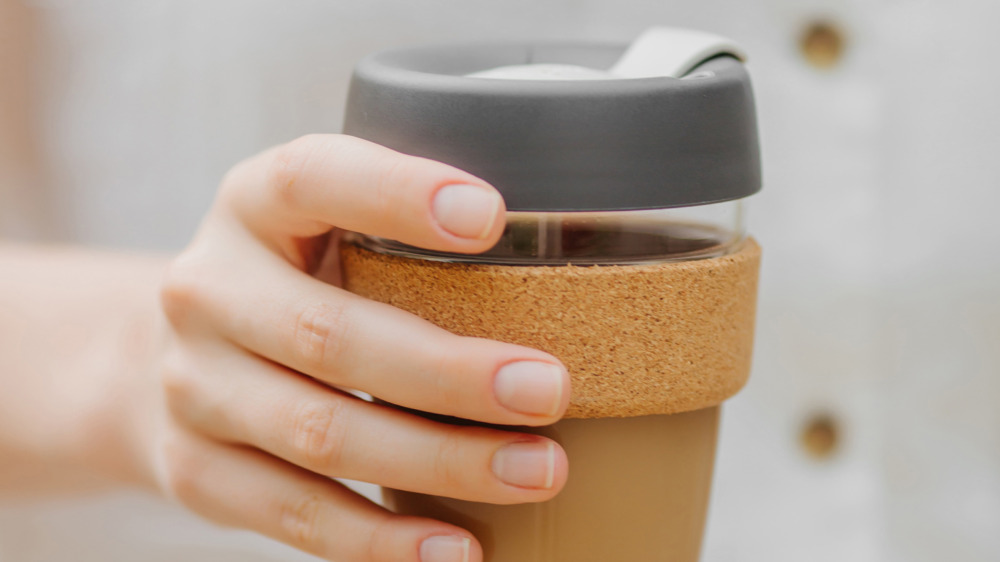This Is What Happens When You Quit Drinking Coffee During Ramadan
Coffee holds a special place in American hearts and minds, but these beans are also popular worldwide as an energizing and stimulating part of many different routines. A daily habit, many people regularly consume multiple cups of coffee during the day. While not generally considered dangerous, coffee can absolutely be addictive, and changing this habit can cause unpleasant withdrawal symptoms. Giving up coffee can start generating physical withdrawal symptoms within 12-24 hours (via Verywell Mind). So tied to our daily cup are we, that a 2011 survey showed 49 percent "would rather give up their cell phone for a month than go without" their daily cup of coffee (via HuffPost).
Yet giving up coffee is exactly what many people do on a yearly basis. Some people abstain to honor New Year's resolutions, others will give up their coffee for Lent, and right now, many people are forgoing this favorite beverage for Ramadan. Ramadan is one of the holiest of Islamic months and is observed by millions of Muslims across the globe (via BBC). Adherents use this month to give to charity, demonstrate kindness and patience, and use this time to strengthen personal connections to God through observances such as reciting the Qu'ran and prayer, as well as fasting.
Fasting consists of eating a pre-dawn meal called suhoor or sehri and abstaining from food and drink (even water) until dusk where communities then gather for iftar or fitoor, the evening meal. That means no coffee.
Ramadan is a time of fasting for many
Giving up coffee is especially hard for many Muslims. Health experts say that giving up coffee may trigger feelings of depression and anxiety, may affect a person's ability to concentrate, and for many, cause the dreaded caffeine withdrawal headaches. Muslim dietician Nazima Qureshi recommends that you don't go cold turkey, and instead begin your month without coffee by gradually weaning yourself down ahead of time (via BuzzFeed). Start by switching out 2-3 cups a day with a non-caffeinated beverage like lemon water or tea. This will "help you keep the habit of drinking something warm," which can avoid some initial withdrawal symptoms.
For those who do still drink water, keeping up your water intake during the day is also a good way to minimize withdrawal symptoms (via Have Halal Will Travel). But if you abstain, make sure to drink plenty of water before fasting begins, as well as at least 4 cups each at sehri and iftar, says Qureshi. Many who stop drinking coffee can get shaky or dizzy in addition to experiencing headaches. Have Halal Will Travel suggests using essential oils to help combat these symptoms, using a dab or two of soothing oils topically. As with any other lifestyle change, make sure to get enough sleep.

